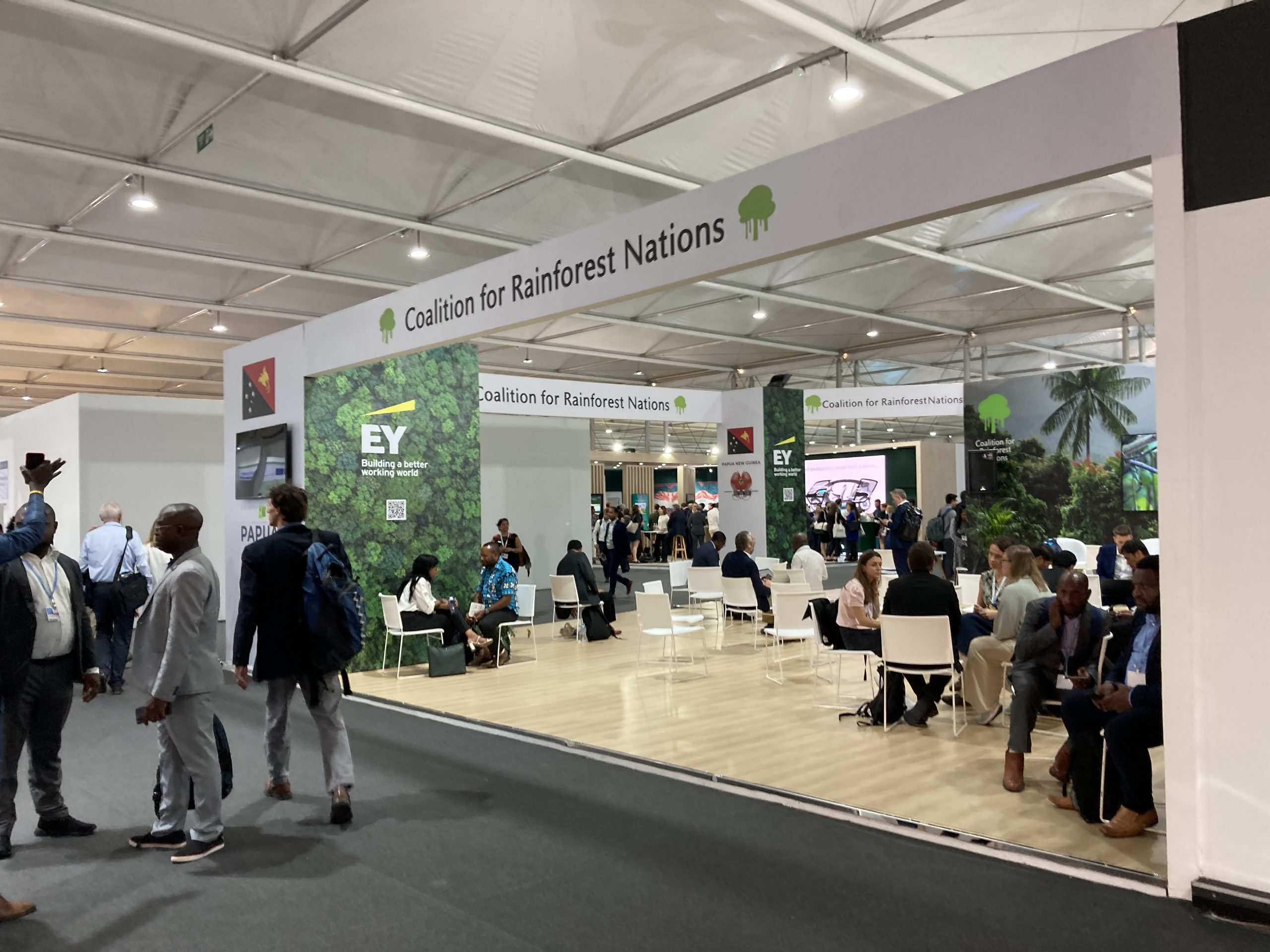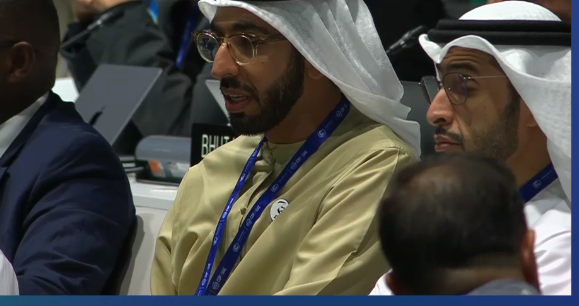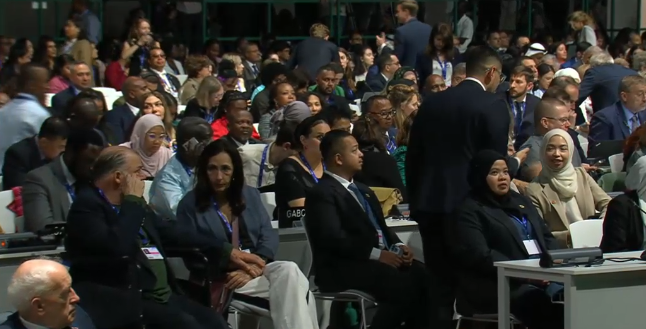By Houmi Ahamed-Mikidache
The 28th United Nations Climate Change Conference promises to be stormy. The stakes are enormous. The Voluntary National Determined Contributions, initially presented at the Paris Agreement at COP 21 (2015) and to be reviewed every five years, do not reach the 1.5 degrees required by the science. According to Nnimmo Bassey, director of Health of Mother Hearth (HOMEF), a Nigerian-based NGO, taking a voluntary path to reduce emissions is a direct subversion of climate science and justice. “The logic of science has been used to show the carbon footprint and the trajectory of rising temperatures. However, the illogicality of geopolitics has seen powerful countries backtrack on their serious commitments and actions, so the gap between equity and fair share can be expected to widen every day, “he writes in his blog. COP 28 is organized this year in an oil-producing country . The president of the COP, Sultan Al Jaber, runs the largest oil company in his country. But according to a press release received by Era Environnement yesterday, he “has agreed to step down from his position as CEO of ADNOC”. For Bassey, the situation will be the same. “This will not change his national approach to climate action,” he clarifies.

The global Stocktake
The global stocktake will be the subject of the two weeks negotiations. The global stocktake should be presented every 5 years with the revision of nationally determined contributions. The COP28 summit in Dubai, UAE, will focus on how countries are building on the findings of the Global Inventory Report. A global assessment whose objective is to limit the rise in temperatures to 1.5 degrees Celsius and to face the impacts of climate change. The negotiated outcome of the Global Stocktake will cover all aspects of the negotiations, including nationally determined contributions (NDCs), climate finance, loss and damage, energy, nature, adaptation and non-participating stakeholders.
The IPCC’s Sixth Assessment Synthesis Report highlights the need for rapid elimination of fossil fuels to reach 1.5c. Civil society organizations are asking for agreement on this. The EU supports an agreement on phasing out fossil fuels, India backed down from its position at COP27 and China says it is unrealistic, reports observers. Members of the High Ambition Coalition, including Denmark, Chile, the EU, Spain and the Marshall Islands, are also in favour. Non-governmental organizations are calling for a 1.5 degree CO2 emission limit and an immediate exit from fossil fuels.
The operationalization of the loss and damage fund
China, champion of renewable energy production and describes as one of the main polluters of the planet with the United States of America. They will be at the heart of the attention. But the Emerging countries and middle eastern countries will also be in the sights of observers. China is part of Group 77, a group representing Global South countries. Particular attention will also be paid to the positioning of this group of negotiators, as well as that of negotiators from least developed countries, Africa and small island developing countries. For Fadhel Kaboub, Special Advisor of Think Thank Power Shift Africa, the unity of these different groups must make it possible to achieve an ambitious result, such as the adoption of the creation of the fund for loss and damages, an adoption acquired at the last minute last year at COP 27, through a concerted action of the different groups of the Global South . But the road is still long this year, global southern countries must be careful, he emphasizes. Kaboub brings his solutions on Your Voice, proposing the cancellation of the debt of the countries of the south and the implementation of grants to facilitate projects related to access to renewable energy. According to some experts, an ambitious outcome would imply that countries agree to achieve percentage targets for the reduction of oil and gas supply and demand, with a minimum reduction of 15% by 2030 and a reduction of 65% by 2050, and commitments to end new production, exploration and subsidies.

Announcements on global renewable energy financing are expected during the COP. COP28 is expected to agree on a global adaptation target and a process to accept new financing targets by 2030 that could unlock more support and financing for food and agriculture. But negotiations fragmented into several themes and defended in negotiating groups will be replaced by individual interests to the detriment of populations, stresses civil society. In a context of economic crises and heavy debts, the countries of the Global South will be the subject of concerted observation by civil society, particularly on the issue of the carbon market. Negotiations on the carbon market are expected to continue under Article 6 of the Paris Agreement, in the context of concerns over agreements between an UAE company and several African countries. According to experts, the agreements reached with the United Arab Emirates could allow them to take control of the African land mass the size of the United Kingdom, but that could change if market rules tighten and players like Brazil insist on the need for other ways to pay for nature.
The progress on finance?
The climate finance gap and ongoing discussions on reform of multilateral financial institutions should remain a priority. The question to ask would perhaps be to see concretely what are the benefits of the new global financial pact concluded in Paris, even if the latter does not enter the negotiations? How to integrate the question of financing Just Energy Transition Partnerships? Another point, according to the latest OECD publication, the target of $100 billion promised in 2009 should be reached in 2022, but no public data shows this, notes experts. Calls are being made for increased transparency to avoid delays in reporting. The latest UNEP adaptation GAP 2023 report identify progress in planning, financing and implementation of adaptation measures and notes that the adaptation financing needs of developing countries are 10 to 18 times larger than international public funding flows. This is more than 50% higher than the previous estimate, experts say. The modelled costs of adaptation in developing countries are estimated at $215 billion per year this decade. Funding for adaptation to implement national adaptation priorities is estimated at $387 billion annually.

Observers will monitor pledges to the Green Climate Fund. Australia, Italy, Sweden, Switzerland and the United States have announced their intention to also make pledges to the second replenishment of this fund, which has so far received $9.3 billion from 25 countries. Gulf states, including the host of COP 28, the UAE, are also under pressure to become contributors. Civil society organizations are demanding a tax on fossil fuels to pay for losses and damages. A recent report by the international network of civil society , Climate Action Network (CAN), estimates that a fossil fuel extraction charge could raise $210 billion. The question of the headquarters of the loss and damage fund has been debated in the negotiations since the creation of the fund was adopted. The United States, stresses Fadhel Kaboub, on Your Voice, is pushing for this fund to be located within the World Bank. But for the expert, it’s an aberration. “The annual fees to host the fund by the World Bank would be $240 billion, just for the fees. There are no funds with $250 billion!” he exclaims on Your Voice. The issue of contributors will also be at the heart of the negotiations. Who will fund this fund? What will be the terms of access?
At the Summit of Heads of State, France and Kenya should launch a working group on innovative sources of funding. The UNEP GAP report 2023 also identifies seven ways to increase funding, including through national spending and international and private funding. Other opportunities include diaspora remittances, increasing and adapting financing to small and medium-sized enterprises, and reforming the global financial architecture. The new Loss and Damage Fund will also need to evolve towards more innovative financing mechanisms to achieve the necessary scale of investments, according to the report.
“Given the huge funding need, I think we will need all possible solutions. Innovative financing, such as a levy on flights, is probably one of the most realistic in the short term. Remittances already contribute to adaptation, as families use these funds to improve their own resilience,” explains Mathias Söderberg, Co-Chair of the Climate Change Group of the Act Alliance.




